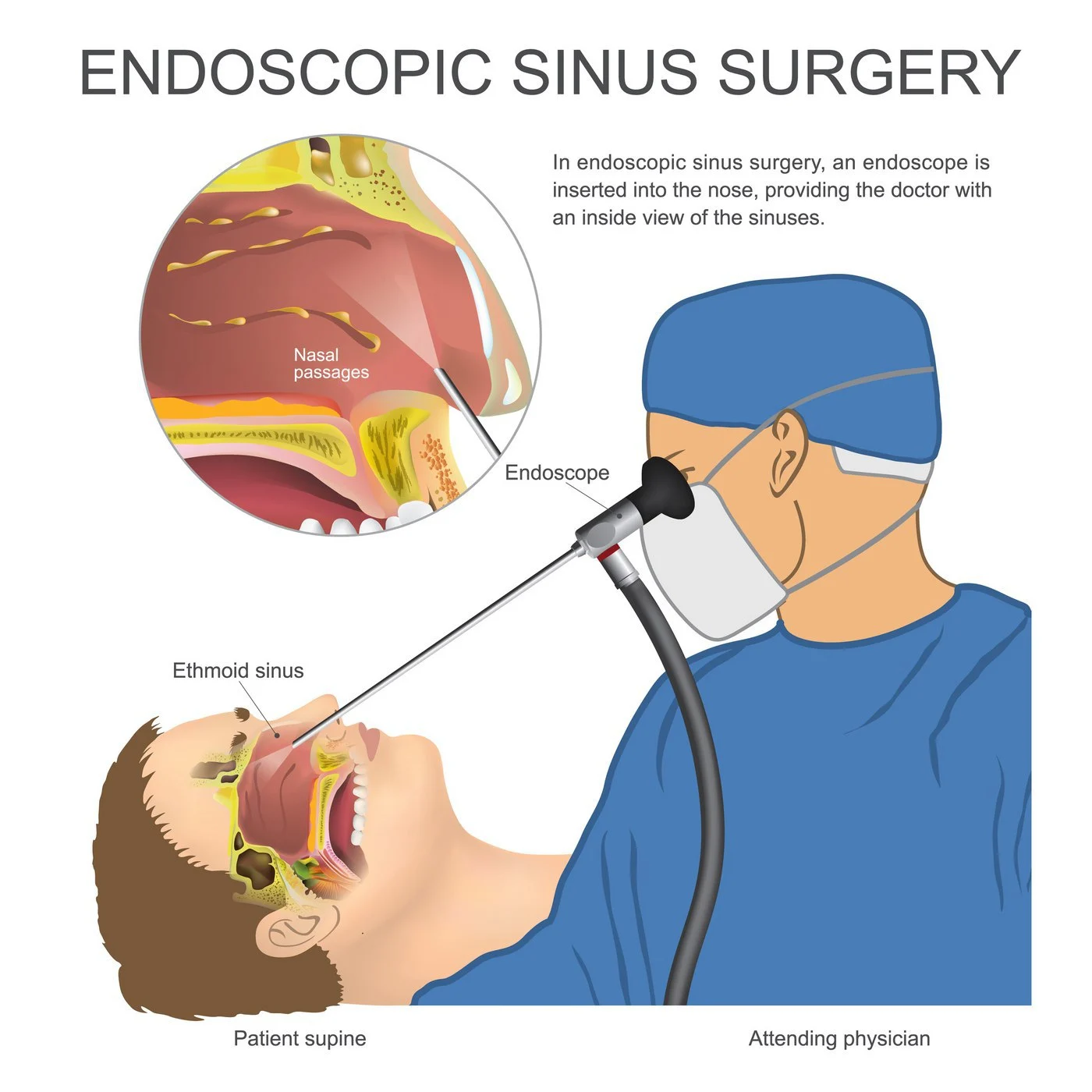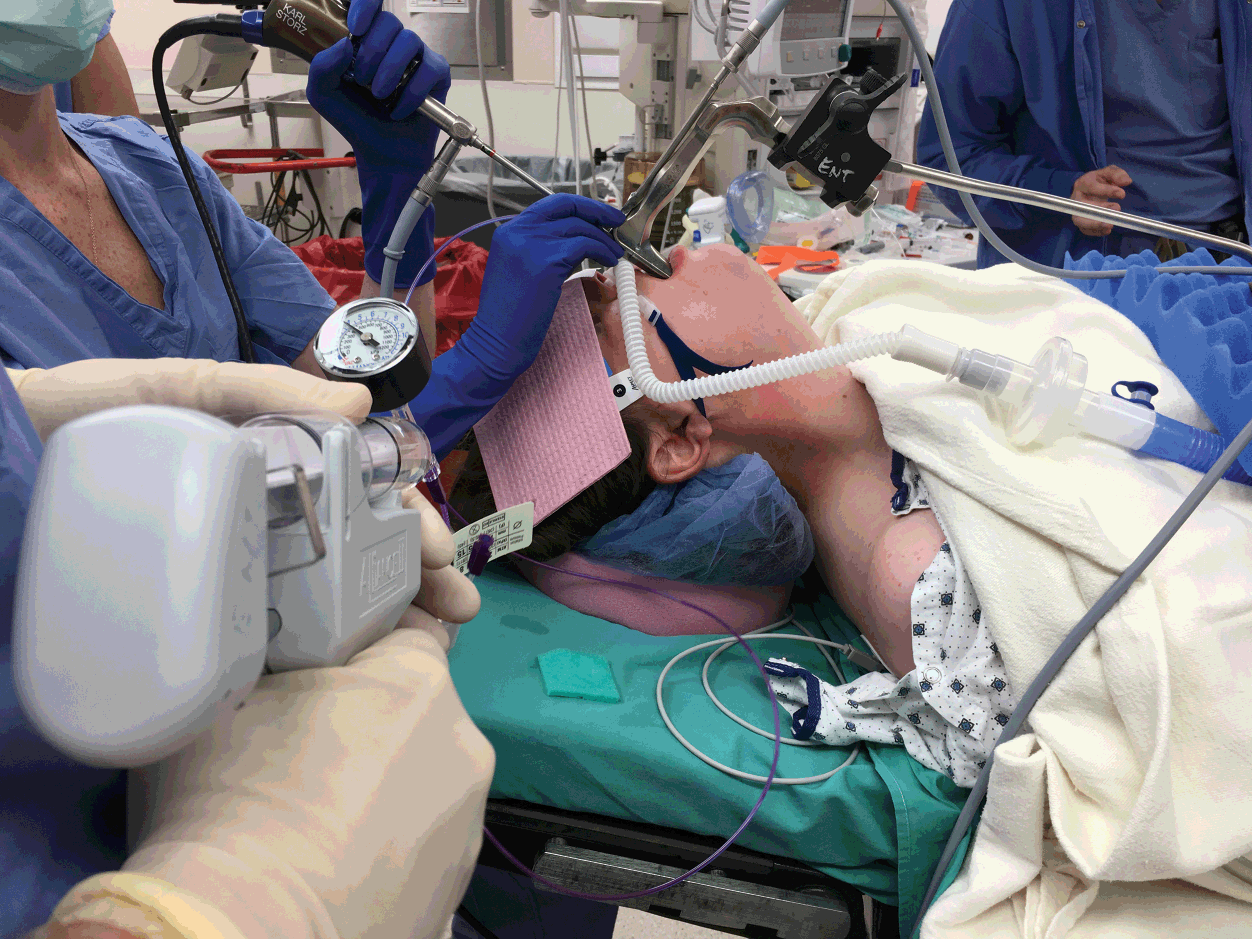Understanding ENT Surgery: Comprehensive Care for Ear, Nose, and Throat Conditions

Introduction to ENT Surgery
Ear, Nose, and Throat (ENT) Surgery, also known as Otolaryngology, is a specialized medical field dedicated to diagnosing and treating conditions affecting these critical sensory and respiratory organs. ENT Surgery encompasses a wide range of procedures designed to address various conditions that impact our ability to hear, breathe, speak, and maintain balance. Whether you’re dealing with chronic sinusitis, hearing loss, voice disorders, or more complex conditions requiring surgical intervention, understanding ENT Surgery can help you make informed decisions about your care.
At Facial Surgical Center, our team of board-certified ENT surgeons brings decades of combined experience to provide comprehensive care for patients of all ages. Our approach to ENT Surgery integrates cutting-edge techniques with compassionate patient care, ensuring optimal outcomes for each unique case.
Common Conditions Requiring ENT Surgery
ENT Surgery addresses a diverse array of conditions affecting the ear, nose, throat, and related structures of the head and neck. Some of the most common conditions that may require ENT Surgery include:
Ear Conditions
- Chronic Ear Infections: Persistent or recurrent ear infections may require surgical intervention, such as tympanostomy tube placement, to provide drainage and prevent future infections.
- Hearing Loss: Certain types of hearing loss can be addressed through ENT Surgery, including stapedectomy for otosclerosis or cochlear implantation for severe sensorineural hearing loss.
- Ear Tumors: Benign or malignant growths in the ear canal or temporal bone may necessitate surgical removal.
- Meniere’s Disease: In severe cases, surgical procedures such as endolymphatic sac decompression or labyrinthectomy may be recommended to manage symptoms.
Nasal and Sinus Conditions
- Chronic Sinusitis: When medication fails to provide relief, functional endoscopic sinus surgery (FESS) can help restore normal sinus drainage.
- Nasal Polyps: These non-cancerous growths may require surgical removal when they obstruct breathing or contribute to chronic sinusitis.
- Deviated Septum: Septoplasty can correct structural abnormalities in the nasal septum that impair breathing.
- Nasal Valve Collapse: Surgical reconstruction can address this common cause of nasal obstruction.
Throat and Neck Conditions
- Tonsillitis: Recurrent or chronic tonsillitis may require tonsillectomy, one of the most common ENT Surgery procedures.
- Sleep Apnea: Various surgical approaches, including uvulopalatopharyngoplasty (UPPP) or tongue base reduction, can address anatomical causes of obstructive sleep apnea.
- Vocal Cord Lesions: Nodules, polyps, or cysts on the vocal cords may require microsurgical removal to restore voice quality.
- Thyroid Disorders: Thyroid surgery ENT specialists perform includes partial or complete thyroidectomy for conditions like goiter, nodules, or thyroid cancer.
Advanced ENT Surgery Techniques and Technologies
Modern ENT Surgery has evolved significantly with technological advances that enable more precise, less invasive procedures with faster recovery times. At Facial Surgical Center, our ENT surgeons utilize state-of-the-art techniques including:
Minimally Invasive Approaches
Minimally invasive ENT Surgery techniques have revolutionized patient care by reducing tissue trauma, minimizing scarring, and accelerating recovery. These approaches include:
- Endoscopic Sinus Surgery: Using thin, flexible instruments with attached cameras to access and treat sinus conditions without external incisions.
- Balloon Sinuplasty: A catheter-based system that dilates blocked sinus openings without removing tissue or bone.
- Transoral Robotic Surgery (TORS): Robotic assistance allows surgeons to access difficult-to-reach areas of the throat with enhanced precision.
- Image-Guided Surgery: Advanced imaging technologies provide real-time navigation during complex procedures, improving safety and accuracy.
Laser Technology in ENT Surgery
Laser technology has transformed many ENT Surgery procedures by offering greater precision and reducing collateral tissue damage. Applications include:
- Laser Tympanoplasty: Repairing ear drum perforations with minimal trauma.
- Laser Stapedotomy: Creating precise openings in the stapes bone to restore hearing.
- Vocal Cord Surgery: Treating lesions while preserving surrounding healthy tissue.
- Endoscopic Laser-Assisted Dacryocystorhinostomy (DCR): Opening blocked tear ducts with greater precision.

Specialized ENT Surgery Procedures
Ear Surgery
Ear Surgery encompasses a range of procedures designed to address conditions affecting hearing, balance, and ear structure. Common Ear Surgery procedures include:
- Myringotomy and Tube Placement: Inserting ventilation tubes to drain fluid and prevent recurring ear infections.
- Tympanoplasty: Reconstructing damaged eardrums to restore hearing and prevent infections.
- Mastoidectomy: Removing infected portions of the mastoid bone to treat chronic ear infections or cholesteatoma.
- Ossicular Chain Reconstruction: Repairing or replacing the tiny bones of the middle ear to improve sound transmission.
For patients with conductive hearing loss, Ear Surgery can often produce dramatic improvements in hearing quality and overall quality of life. At Facial Surgical Center, our specialists in Ear Surgery use microsurgical techniques to ensure optimal outcomes with minimal recovery time.
Nose Surgery
Nose Surgery (Rhinoplasty ENT procedures) addresses both functional and aesthetic concerns related to the nasal structures. Functional Nose Surgery aims to improve breathing and sinus drainage, while cosmetic rhinoplasty enhances nasal appearance. Types of Nose Surgery include:
- Septoplasty: Straightening a deviated septum to improve airflow and relieve obstruction.
- Turbinate Reduction: Reducing enlarged turbinates that can block nasal passages and contribute to chronic congestion.
- Rhinoplasty ENT Approach: Combining functional improvements with aesthetic enhancements to achieve both better breathing and desired appearance.
- Sinus Surgery: Opening blocked sinuses and removing diseased tissue to restore proper drainage and relieve pressure.
Nose Surgery can significantly improve quality of life for patients suffering from chronic nasal obstruction, recurrent sinusitis, or structural abnormalities affecting breathing. Our ENT surgeons are highly skilled in both the functional and aesthetic aspects of Nose Surgery, ensuring comprehensive care tailored to each patient’s needs.
Throat Surgery
Throat Surgery addresses conditions affecting the pharynx, larynx, and related structures essential for speaking, breathing, and swallowing. Common Throat Surgery procedures include:
- Tonsillectomy and Adenoidectomy: Removing chronically infected or enlarged tonsils and adenoids to improve breathing and reduce infections.
- Vocal Cord Surgery: Treating nodules, polyps, cysts, or other lesions affecting voice production.
- Laryngeal Framework Surgery: Modifying the position or tension of the vocal cords to improve voice quality.
- Hypopharyngeal Procedures: Addressing anatomical factors contributing to sleep apnea or swallowing difficulties.
Throat Surgery can restore essential functions while alleviating chronic pain or discomfort. Our approach to Throat Surgery emphasizes preserving natural function while effectively treating underlying conditions.
Thyroid Surgery ENT Approach
Thyroid surgery ENT specialists perform requires meticulous precision due to the gland’s proximity to critical structures like the laryngeal nerves and parathyroid glands. Common thyroid procedures include:
- Thyroid Lobectomy: Removing half of the thyroid gland, typically for nodules or suspected cancer.
- Total Thyroidectomy: Removing the entire thyroid gland for conditions like thyroid cancer or multinodular goiter.
- Parathyroid Surgery: Addressing disorders of the parathyroid glands that regulate calcium metabolism.
The thyroid surgery ENT approach emphasizes nerve monitoring and precise dissection techniques to minimize complications and preserve voice quality. Our surgeons are experienced in both traditional and minimally invasive thyroid procedures, tailoring the approach to each patient’s specific condition and anatomy.
The ENT Surgery Patient Experience
Preoperative Evaluation and Planning
Before any ENT Surgery procedure, patients undergo thorough evaluation to ensure the most appropriate treatment plan. This typically includes:
- Comprehensive Physical Examination: Assessing the affected structures and overall health.
- Diagnostic Testing: May include audiograms, CT scans, MRI, nasal endoscopy, or other specialized tests.
- Medication Review: Identifying medications that may affect surgery or recovery.
- Discussion of Treatment Options: Reviewing potential benefits, risks, and alternatives to surgery.
This detailed preoperative assessment allows our ENT Surgery team to develop personalized treatment plans that address each patient’s unique condition and goals.
Recovery and Rehabilitation After ENT Surgery
Recovery following ENT Surgery varies depending on the specific procedure performed. General aspects of recovery may include:
- Initial Recovery Period: Typically ranges from a few days to several weeks.
- Pain Management: Most patients experience mild to moderate discomfort managed with prescribed medications.
- Activity Restrictions: Temporary limitations on physical activities, exercise, and certain dietary items.
- Follow-up Care: Regular appointments to monitor healing and address any concerns.
For more complex ENT Surgery procedures, rehabilitation may include:
- Speech Therapy: Particularly after vocal cord or laryngeal procedures.
- Swallowing Therapy: For patients who undergo procedures affecting swallowing function.
- Balance Rehabilitation: Following certain types of Ear Surgery.
Our ENT Surgery team provides comprehensive postoperative care and detailed instructions to optimize recovery and long-term outcomes.
Advances in ENT Surgery Research and Innovation
The field of ENT Surgery continues to evolve through ongoing research and technological innovation. Current areas of advancement include:
- Minimally Invasive Techniques: Continued refinement of endoscopic and robotic approaches to reduce recovery time and improve outcomes.
- Implantable Hearing Devices: Development of more sophisticated cochlear implants, bone-anchored hearing aids, and middle ear implants.
- Tissue Engineering: Research into growing replacement tissues for reconstructive ENT Surgery.
- Drug-Eluting Stents and Implants: Devices that deliver medications directly to surgical sites to improve healing and prevent complications.
At Facial Surgical Center, our ENT Surgery specialists remain at the forefront of these innovations, incorporating evidence-based advances into our practice to provide patients with the most effective treatment options available.
Choosing the Right ENT Surgery Specialist
Selecting the right ENT surgeon is crucial for achieving optimal surgical outcomes. When considering ENT Surgery, patients should look for:
- Board Certification: Ensuring the surgeon has completed requisite training and passed comprehensive examinations.
- Specialized Experience: Finding surgeons with specific expertise in the particular type of ENT Surgery needed.
- Technological Capabilities: Access to advanced equipment and techniques relevant to the procedure.
- Comprehensive Approach: A practice that addresses both surgical needs and long-term management of ENT conditions.
The ENT Surgery team at Facial Surgical Center combines specialized expertise with a patient-centered approach, ensuring comprehensive care from initial consultation through recovery and beyond.
Conclusion: The Future of ENT Surgery
As medical technology continues to advance, ENT Surgery will likely become even more precise, less invasive, and more effective at addressing both common and complex conditions. From robotic surgical systems to artificial intelligence-assisted diagnosis, these innovations promise to further enhance patient outcomes while reducing recovery times and potential complications.
For patients considering ENT Surgery, working with specialists who combine surgical expertise with the latest technological advances provides the best opportunity for successful treatment. At Facial Surgical Center, our commitment to excellence in ENT Surgery reflects our dedication to improving our patients’ quality of life through enhanced hearing, breathing, speaking, and overall head and neck function.
Whether you’re experiencing chronic sinusitis, hearing difficulties, voice changes, or other ENT-related concerns, consulting with an experienced ENT Surgery specialist is the first step toward finding relief and restoring optimal function. Our team is ready to provide the expert care and personalized attention you deserve as you navigate your ENT Surgery journey.
